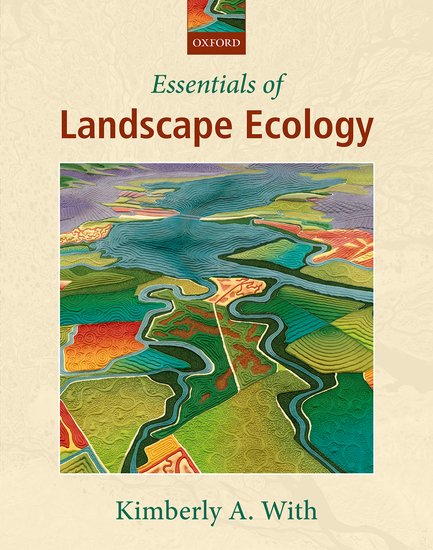August 29, 2019
Biology professor publishes new textbook on landscape ecology

Kimberly With, professor of biology, has just published the first edition of her textbook "Essentials of Landscape Ecology" through Oxford University Press.
Landscape ecology seeks to understand the human dimensions and ecological consequences of land-use change that are contributing to the loss and fragmentation of natural habitats worldwide, as well as to the global climate and biodiversity extinction crises. More generally, landscape ecology studies the interactions between landscape structure and ecological processes across a wide range of scales and in a variety of ecosystems, including aquatic and marine ones.
The first half of the textbook focuses on the core concepts of landscape ecology, including issues of spatial and temporal scale in ecological research, how various types of natural and anthropogenic disturbances influence landscape structure, methods for the analysis of landscape structure and other spatial patterns, and how best to assess landscape connectivity. The second half of the book examines how landscape structure and other forms of spatial heterogeneity influence ecological processes, including individual dispersal and movement behavior, population distributions and dynamics, the spread of invasive species or diseases, landscape genetics, community structure and dynamics, and ecosystem function. Throughout, the textbook emphasizes applications for conservation and the management of sustainable landscapes. The book is available in hardcover, softcover and e-book versions.
With was named a distinguished landscape ecologist in 2016 by the North American chapter of the International Association of Landscape Ecology, which is the highest honor bestowed by that organization and recognizes those unique individuals whose thinking and writing have helped to shape the field of landscape ecology. In the history of association-North America, she is the only person to have twice been awarded Outstanding Paper in Landscape Ecology for her research contributions to the field. Her research investigates the effects of habitat loss, fragmentation, and land-management practices on the occurrence, viability, and population connectivity of various groups of species, including birds of the Flint Hills and pond-breeding frogs and toads in the Brazilian Cerrado.
